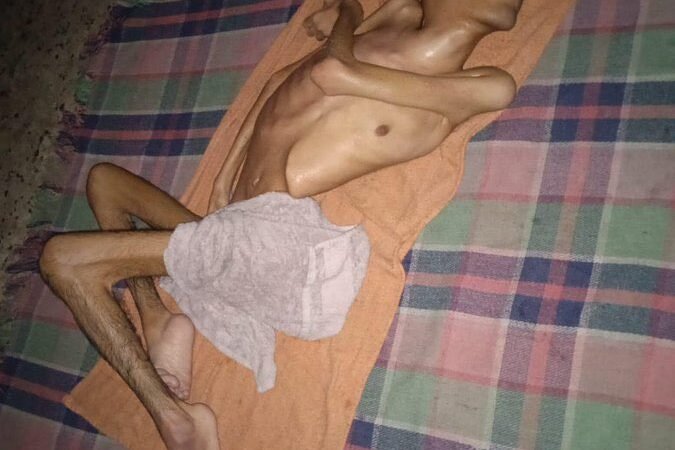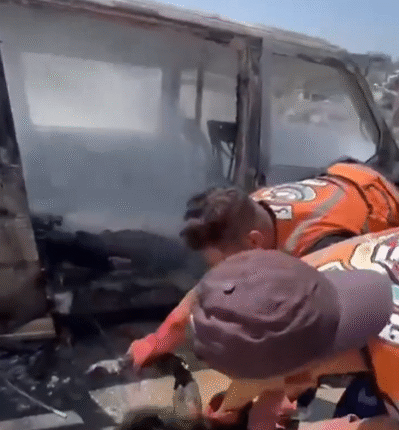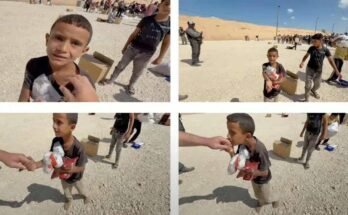In a dark hospital bed in Gaza’s central region, 4 year old Musab Ali Al-Dabbas remains immobile, his body reduced to skin and bones. His gaunt physique is an ominous reminder of the worsening humanitarian crisis unfolding in the Gaza Strip one that is no longer looming but instead consuming the lives of its most vulnerable citizens: children.
Musab’s condition, brought on by severe acute malnutrition, is one of tens of thousands reportedly surfacing across the region. The Integrated Food Security Phase Classification (IPC) estimates projections that over 71,000 children in Gaza could suffer lethal malnutrition by March 2025. These figures, although alarming, only begin to reveal the scope of the disaster.
The reasons for this crisis are multifaceted yet ostensibly political. Israel has tightened its blockade of Gaza since October 2023, isolating the strip almost entirely. A 90% reduction in electricity an immediate consequence of the blockade has brought vital services to a standstill. Cold storage for medicine and food is largely inoperable, water purification is all but impossible, and hospitals are operating on emergency generators that fail regularly.
“Children like Musab are no longer just hungry they are starving to death slowly,” a Médecins Sans Frontières (Doctors Without Borders) field medic said. “Their bodies are consuming themselves.”
A 2023 United Nations report noted the biological destruction that occurs as a result of extended food deprivation among children, especially under five years of age. When caloric consumption drops below survival levels, the body will start to disintegrate its own tissues in order to survive. This, over time, can cause muscle wasting, failure of the immune system, and ultimately organ failure.
Scientific evidence reinforces the warnings made by medics on the ground for months. Children under five with acute malnutrition are 50% more likely to kill unless treated immediately with medical and nutritional care, reports a 2022 Journal of Nutrition article. And in Gaza, where medical aid is dwindling and humanitarian convoys regularly are being blocked, that care is increasingly unlikely.
But for all the warnings from aid groups and UN officials, food, water, and medicine remain spotty and inadequate. The blockade, along with destruction from continued airstrikes, has turned Gaza into what some human rights monitors now call a “death zone for children.”
The deliberate withholding of resources in Gaza has stirred international outrage over the employment of food and energy as weapons of war. Human Rights Watch and Amnesty International have both criticized the blockade as a violation of international humanitarian law. But such efforts to open humanitarian corridors have been thwarted by political stalemates and the lack of concerted global pressure.
“Children should never be used as pawns in political conflict,” said Francesca Albanese, UN Special Rapporteur on the occupied Palestinian territories. “Yet what we’re witnessing in Gaza is a systemic, state-enabled attack on the very right to life and dignity.”
Musab Ali Al-Dabbas’ tale is not unique, but it is one that is timely. His skeletal body is reflective of thousands of children teetering on the brink. His hollow eyes gaze into a future few may ever see. His silence is a cry for help that the world cannot ignore.
UNICEF, the World Food Programme, and UNRWA continue to call for unfettered humanitarian access. Unless immediate, large scale action is taken, they warn, Gaza may be headed for the worst children’s famine in decades.
The world now relies on the international community governments, NGOs, and citizens like us to act. Through policy pressure, through donating, through spreading awareness, the world cannot remain passive while Gaza’s children vanish.
Musab may survive. Or he could just be another name on the growing list of children murdered in Gaza. But his story has to be an eye-opener not only to the atrocities being perpetrated behind closed doors but to the complacency that allows them to continue.
In war times, it has been said that truth is the first casualty. In Gaza, children appear to be.
Gaza’s Youngest Victims: The Malnutrition Crisis Through the Eyes of Musab Ali Al-Dabbas



